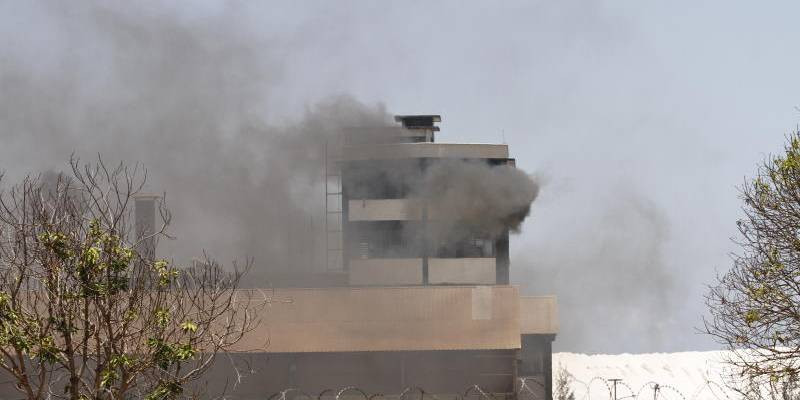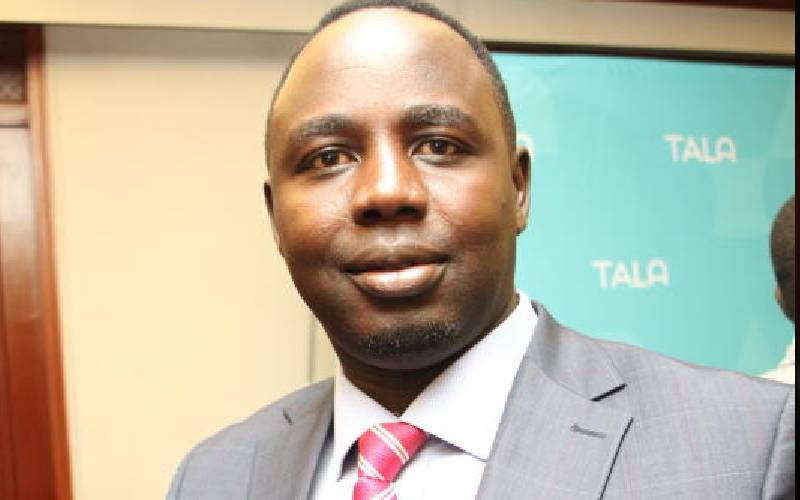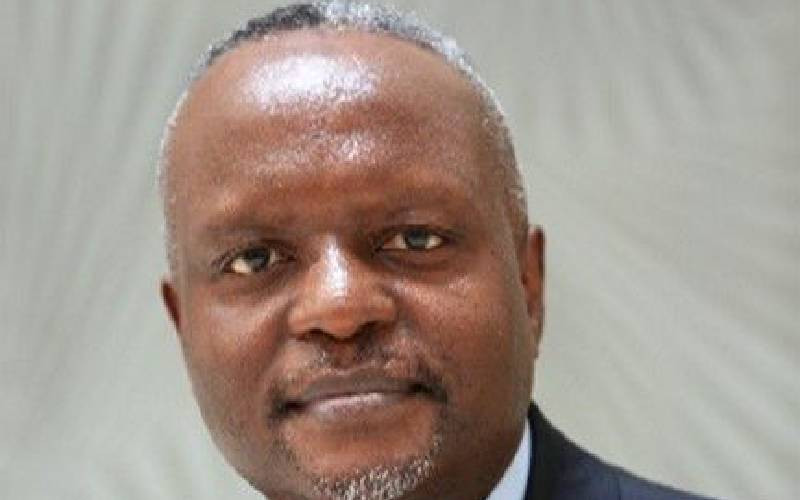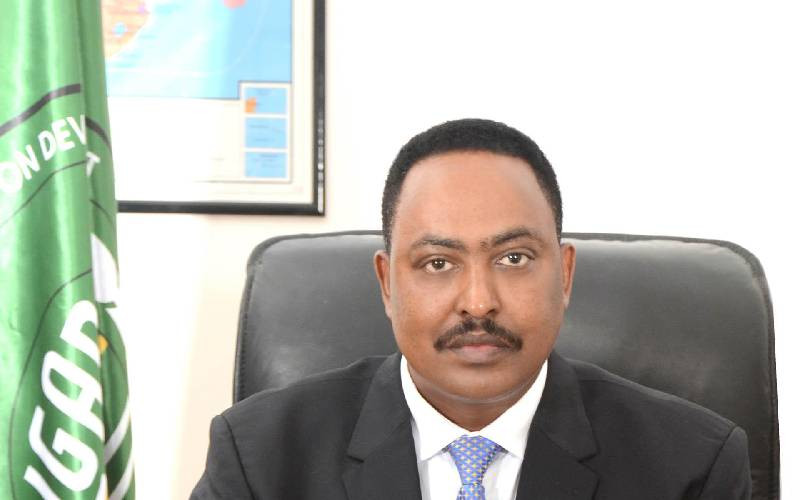Chairperson of the Independent Electoral and Boundaries Commission (IEBC) Dr. Erastus Edung Ethekon during the swearing in of the commission at Supreme Court on July 11, 2025. [Kanyiri Wahito, Standard]
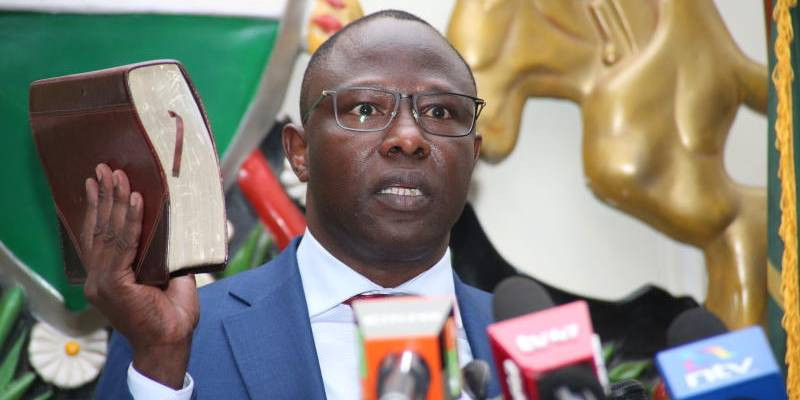
Chairperson of the Independent Electoral and Boundaries Commission (IEBC) Dr. Erastus Edung Ethekon during the swearing in of the commission at Supreme Court on July 11, 2025. [Kanyiri Wahito, Standard]
When the new Independent Electoral and Boundaries Commission chairman, Erastus Ethekon, said he knew the task ahead would be challenging for his new team, the Chief Executive Officer, Marjan Hussein Marjan, smiled.
Ethekon, in his maiden speech, said the herculean task is to ensure that the voices of voters will not only be heard but honoured and counted during the pending by-elections and the ultimate political contest in 2027.
“My first and foremost loyalty is to the people of Kenya who hold the sovereign power under Article 1 of the Constitution. That power allows them to exercise their sovereign responsibility, including their right to vote, and therefore, I wish to assure Kenyans that their voices will not only be heard but will also count during the coming elections.
“IEBC has the responsibility to ensure that the voice of every Kenyan is not only heard but honoured,” said Ethekon. He was sworn in by Chief Justice Martha Koome yesterday alongside Ann Nderitu, Moses Mukhwanaa, Mary Sorobit, Hassan Noor, Francis Aduol and Fahima Abdallah as commissioners.
Their entrance to the hot seat marks another chapter of a commission that, over the years, has been the epicentre of drama and political tensions over allegations of rigging.
The former Turkana County Government official stated that the task ahead will require adhering to the rule of law, fairness and the principle that all Kenyans matter.
“I urge all Kenyans to use this opportunity to help build a peaceful and stable country,” he said.
The entrance of Ethekon’s team will be a litmus test on what the political class is to expect during the 2027 election. In total, the IEBC has 12 by-elections to conduct — a true test of the people’s voice on the ground.
For President William Ruto, the Baringo County Senate seat and the Mbeere North Constituency National Assembly seat will be a huge test of whether his influence has waned in the Rift Valley and Central Kenya, who were the biggest blocs that gave him the ticket to the throne.
The Senate seat fell vacant following the death of William Cheptumo, while the president appointed Mbeere North MP Geoffrey Ruku as a Cabinet Secretary.
All eyes will be on whether the Democracy for the Citizens Party (DCP), linked to Ruto’s former deputy, Rigathi Gachagua, will make its political debut by fielding a candidate to replace Ruku, just as the President’s party, United Democratic Alliance, replaced former Uhuru Kenyatta’s candidate with Njuguna Wanjiku in Kiambaa Constituency.
The Mbeere North seat will also be a bigger test for Deputy President Kithure Kindiki, as it will be a test on who, between him, Gachagua and President Uhuru Kenyatta, who is the Jubilee Party leader, is the Mt Kenya kingpin.
Stay informed. Subscribe to our newsletter
In Western Kenya, the Kasipul and Ugunja seats will test the growing ties between President Ruto and ODM leader Raila Odinga. Following the death of MP Charles Ong’ondo, many will watch if the President lets Raila pick a replacement unopposed, or backs his candidate to test the waters in Raila’s stronghold.
In Ugunja, the race will pit Raila’s candidate against any contender running as an independent or backed by another party. It will be a litmus test of whether he still holds his crown as the political kingpin of Siaya, Nyanza and Homa Bay.
The constitution requires that whenever a vacancy occurs in the office of an elected Member of Parliament, the speaker ought to, within 21 days, declare a vacancy and give a notice to the IEBC. The written notice then gives way to a by-election within 90 days.
Edung succeeds the late Wafula Chebukati, who left the commission two years ago. The late Chebukati and commissioners Boya Molu and Abdi Guliye’s tenures expired in January 2023, while four other commissioners, vice chairperson Juliana Cherera, Francis Wanderi, Justus Nyang’aya and Irene Masit, were suspended, and a tribunal was set up to investigate their conduct.
The other headache for the new commission will be the boundaries review. The timelines set by the law have already lapsed. The reviews are supposed to be done at intervals of not less than eight years and not more than 12 years. Any review must, however, be completed at least 12 months before a General Election.
The last review was done in March 2012, meaning the next one should have been carried out and concluded by February 2024.
The CJ urged the team to restore trust by conducting a free, fair and accountable election.
“Our painful history of disputed elections, cycles of violence and loss of life and property is a stark reminder that elections are not mere political events—they are matters of national security, economic stability and human rights.
